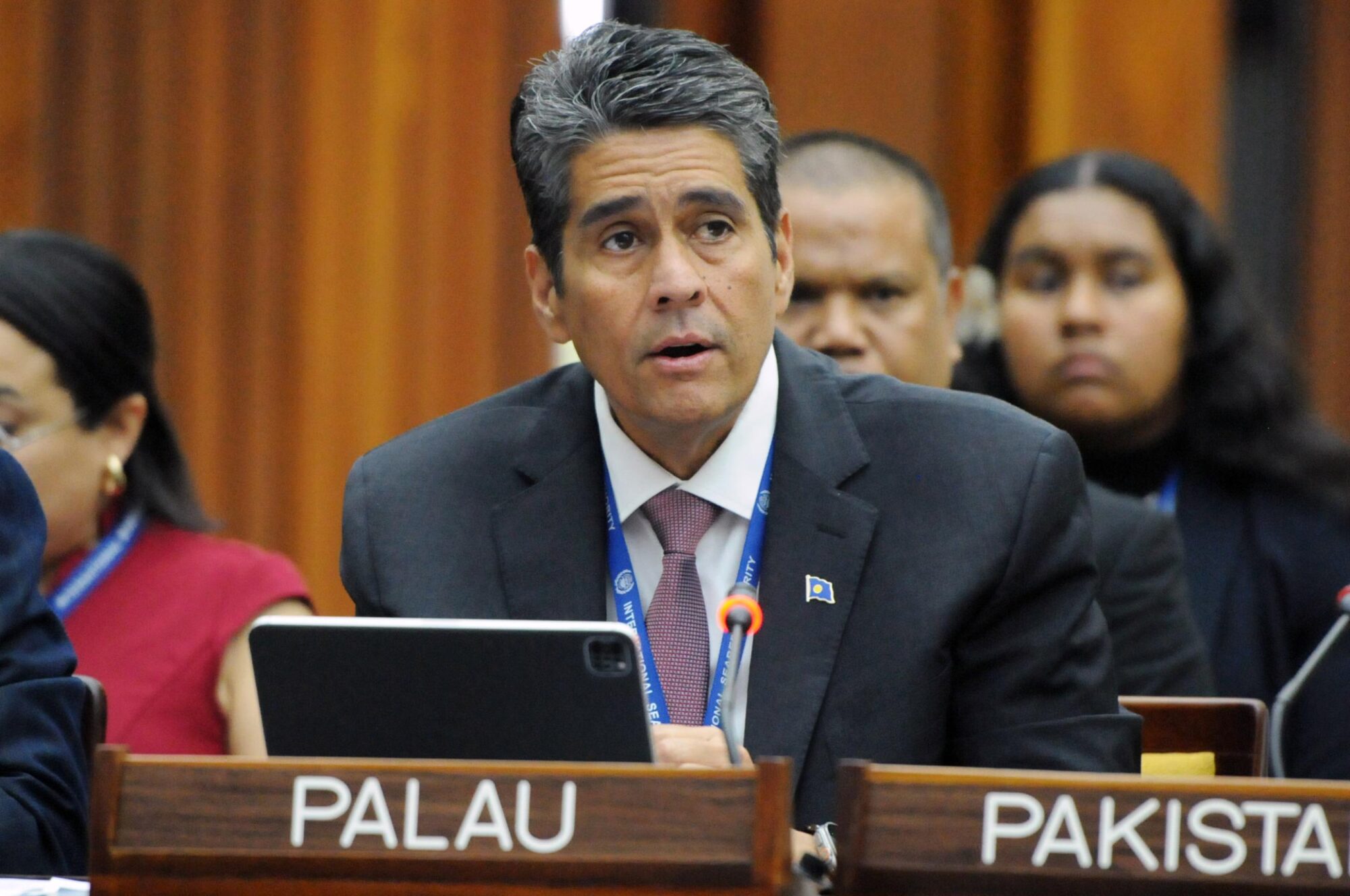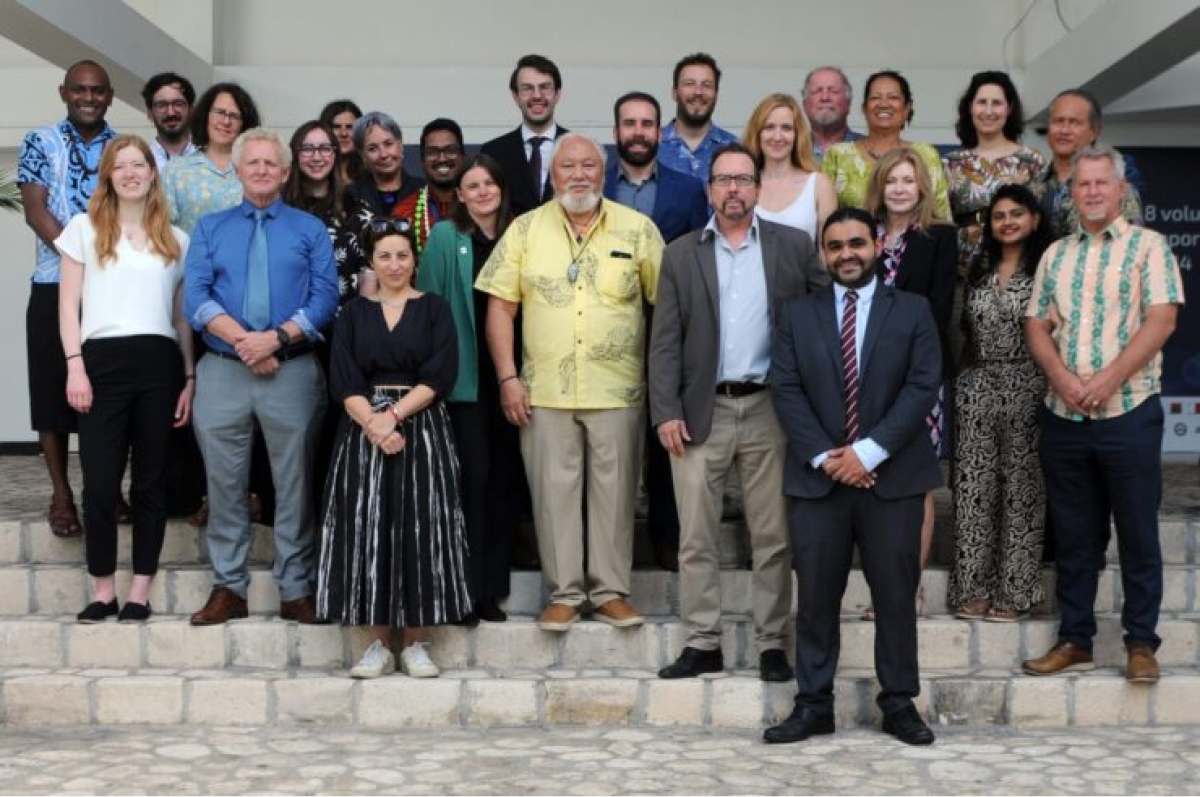International Opposition to Deep Sea Mining Grows

Image – President Surangel Whipps Jr. of Palau addresses the International Seabed Authority in Kingston, Jamaica.
Credit – IISD/ENB – Diego Noguera
Nicole Zanesco | August 21, 2024
At a meeting of the International Seabed Authority (ISA) last month, President Surangel Whipps Jr. of Palau reminded delegates that “we have the power to leave a legacy of respect and reverence for the ocean. In the spirit of unity and stewardship, we must rise to the challenge and protect the deep seabed for the future of our children, for the health of our planet, and for the enduring prosperity of all humankind.”
Over the past three years we’ve witnessed a radical shift at the ISA, one that reflects President Whipps’ message and was exemplified at the July meeting. A Mining Code—which would allow mining to start—was not adopted, and states from around the world spoke out in favour of environmental protection and the precautionary approach. As well, more observers than ever before from the international community attended the meeting to hold the ISA and its member states accountable for the momentous decisions under consideration.
Palau was one of the first countries to support a moratorium on deep sea mining, and it continues to champion the movement two years later. Since the first group of states (Palau, Fiji, Samoa, and the Federated States of Micronesia) announced their moratorium alliance, 28 other countries have joined. At the most recent ISA meeting, five new countries (Malta, Austria, Honduras, Guatemala, and Tuvalu) announced support for a pause or moratorium on deep sea mining. And the call for a moratorium goes well beyond states: it includes representatives of civil society, Indigenous communities and nations, corporations, and scientists. Together, they represent a growing movement questioning whether this nascent industry should proceed.
For most of the ISA’s life, it operated in obscurity under the assumption that deep sea mining was inevitable. Now, the meetings are the nexus of an existential debate: should we mine the international seabed at all? This debate is permeating every level of discussion at the ISA, from negotiations about the Mining Code to the election of a new Secretary General.
The Mining Code is meant to regulate deep sea mining in international waters. Originally, negotiations surrounding the code were focused on getting the regulations finished and adopted; now, they are more philosophical and critical of the potential industry. When discussing environmental impact assessments, there is greater focus on the need for baseline data and science-based decision making, as well as the fact that we know very little about the deep sea, including the thresholds upon which impact assessments must be based. During the ISA meeting, a paper was published in Nature that provides evidence of oxygen being produced by polymetallic nodules on the seafloor—the very same nodules that companies want to mine. This is just one example of our dearth of deep-sea knowledge and what could be lost if mining is greenlit.
Negotiations about the other aspects of the draft Mining Code are being similarly impacted. The potentially huge operational cost and difficulty of enforcing and monitoring compliance is being revealed as more experts weigh in and publish research. Although a core tenet of the ISA is that the benefits of seabed mining should be shared with humankind, there may not actually be any benefits to distribute after companies take their profit and the ISA covers operational costs.
Meanwhile, others are raising concerns about the costs that are not always factored into economic analyses. For the first time in ISA history, thanks to a group of Indigenous leaders and activists from across the Pacific, the cultural significance of the deep sea is being brought to the fore, and Indigenous Peoples are demanding a seat at the table. The ISA is no longer a forum just for states: scientists, civil society, and Indigenous communities are engaging in the process. As a result, mining is no longer an inevitability. There are more seats at the table, and the people sitting in them are showing the world what is at stake.
Hard questions are now being asked, ones that will affect the future of this organization and our planet itself. If we are set to lose more than we gain, how can we rationalize deep sea mining? What does it mean to benefit humankind as a whole, per the ISA’s mission statement? How can an institution ethically regulate an industry it needs for its own financial survival? What is our responsibility to nature and to future generations? But perhaps the most fundamental question of all is: will states decide to prioritize the environmental and cultural importance of the deep sea, or will they give in to corporate interests?
Nicole Zanesco is the international policy advisor for Oceans North and is based in Halifax, N.S.

Image – Members of the Deep Sea Conservation Coalition (pictured) have helped build momentum for a moratorium on deep sea mining.
Credit – Diego Noguera
